Beans or Cheese
Unlike many other cheesemakers, Willicroft does not choose nuts, but beans as the main ingredient of their vegan cheese. The company makes cheese fondue, two cheese sauces, grated Italian and Greek white cheese for retailers. But the company also sells 'Young Dutch' and 'Mature' to foodservice.
Sam Vreeke, product developer at Willicroft: “We would like to match animal cheese as much as possible. It makes it more pleasant for consumers to switch to vegan, even if only occasionally. In terms of taste it was very doable, but structure is still a real challenge. Therefore, many cheese substitutes on the market now replace only one aspect of animal cheese - for example they make cubes of cheese. But if you think of young matured cow's cheese. You can slice it for your sandwich, cut into cubes as part of a cheese board or grate it over a sauce. Being able to do all those things is difficult to imitate with a plant-based variant.” He laughs: "And that's exactly why we want to try it."
‘I can leave out meat, but I really can't pass up cheese’, is a frequently heard response to the call for a vegan diet. It is exactly the motivation of Dutch vegetable cheese brand Willicroft to create plant based cheese that’s just as good as cheese made of animal mill.
Founder of the company Brad Vanstone grew up surrounded by cheese makers. His grandfather and grandmother ran a well-known dairy farm in England. Back when he switched to a plant-based diet, according to him there was a huge lack of tasty vegan cheese. After much experimentation at home, he started Willicroft, named after his grandparents' cheese farm.
© Willicroft
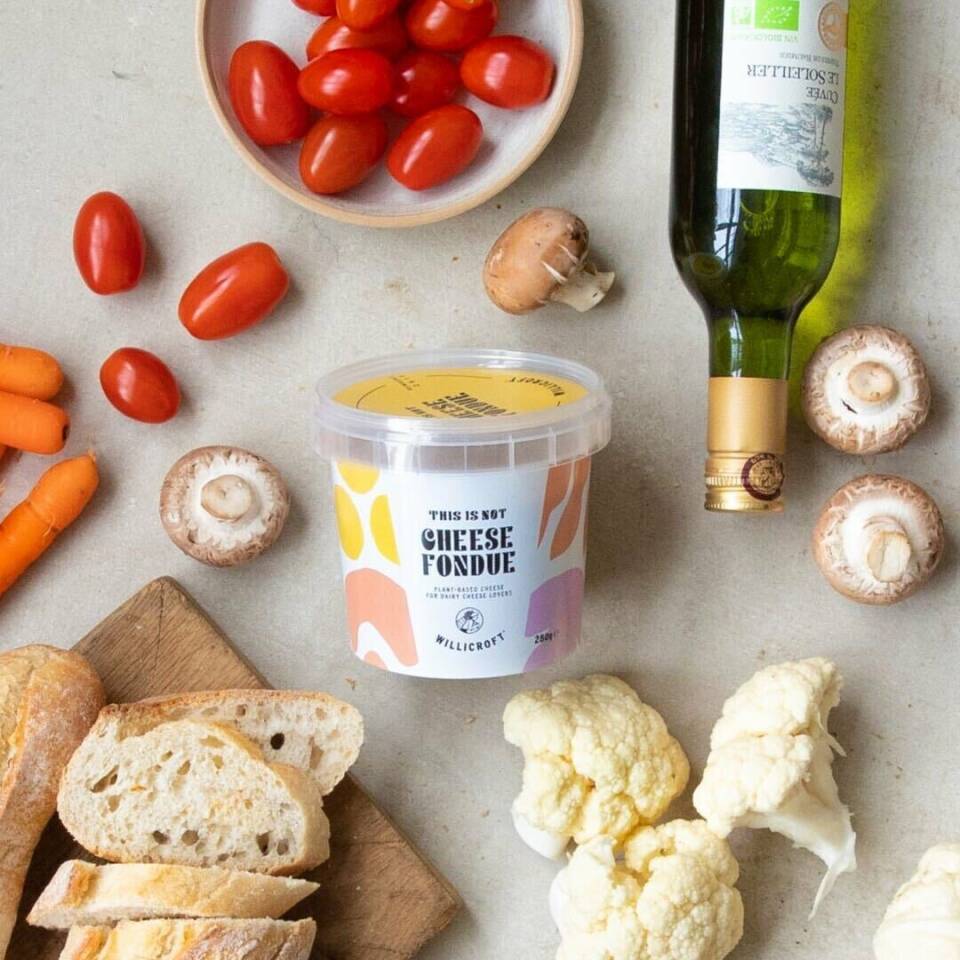
what is waste
© Matriark Foods
Information mentioned in the interview by Anna Hammond.
According to Hammond, making a vegetable broth in your home kitchen is very different from making it at an industrial scale. “We started to experiment on a small scale, and after a while we developed a product that was delicious and a supply chain that was secure.”
Since founding the company in 2018, they’ve grown a lot. Matriark is now selling into large scale food service and made their first big sale to Chartwells, which is a Compass Group company that provides food for higher education. Also the company became a part of the Foodbuy Accelerator for minority and women-owned businesses.
Solving food waste is perhaps the most impactful solution to the climate crisis, and can help to safeguard the livelihoods of many. Matriark foods – located in the state of New York – uses food - that’s been thrown away - to create new products. Their first product to market is a vegetable broth concentrate. By sourcing imperfects and surplus from farmers and remnants from fresh-cut facilities, their Upcycled Broth Concentrate makes use of vegetables that would otherwise go to waste
The products they make, really come out of what was available. “It is quite the opposite approach of most food companies, who for example decide to produce a vegan coconut celery kale ginger soup, after which they search for the products to make it”, says founder Anna Hammond - their approach is more similar to the way a good chef or home cook goes about making something: they open the refrigerator, they ask themselves; what can I make from the stuff that’s in there. So when the team at Matriark saw massive quantities of onions, carrots and celery going to waste, the most obvious thing to make was vegetable broth!
Anna Hammond
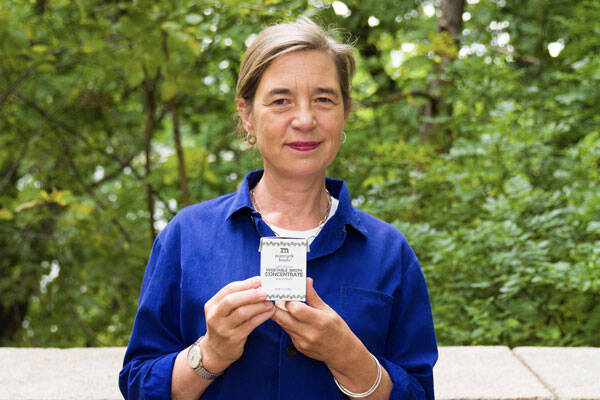
Seaweed soda
But in what way can seaweed and algae be used in our diets? For chefs kelp is an umam-heavy ingredient that is very flexible. Especially in the Japanese cuisine seaweed and algae is used a lot - and not just for sushi and salads. Think of the basic stock known as dashi for example – with types of seaweed such as nori, kombu and wakame. Some chefs dry algae and turn it into a powder to enrich and decorate certain dishes. But if that all sounds a little difficult, it’s now also possible to enjoy algae by simply buying or ordering a soft drink.
The start-up FUL, created 100% vegetable soft drink based on spirulina, by doing so they’ve created CO2-negative superfood drink that is healthy for the planet and for people. The three founders Sara Guaglio, Julia Streuli and Cristina Prat Taranilla met in 2019 during their MBA at INSEAD business school in Singapore and are now located in the Netherlands in Delft. Initially, the makers of the soft drink thought that a green-colored drink would fit in well with the sustainable appearance. But consumers thought otherwise. During test sessions it turned out that the people didn’t find the green color attractive, and preferred the color blue. Since their founding they’ve been awarded with several innovation awards. So maybe in the future, instead of ordering a coke, we’ll all be drinking algae soda.
For several years innovative food designers, scientists and forward thinkers have looked at seaweed as the food that can save our future. That's because for humans some seaweeds like kelp have high concentrations of antioxidants and a bunch of vitamins. For the earth, kelp doesn’t require irrigation, pesticides or fertilizer, like many land-based crops do.
According to GreenWave, a company situated in the US that trains and supports regenerative ocean farmers, growing seaweeds and shellfish is the most sustainable version of food production because they require zero input, farmland and at the same sequester carbon and rebuilding reef ecosystems.
© FUL
4 min
Beans or Cheese
03
© Willicroft
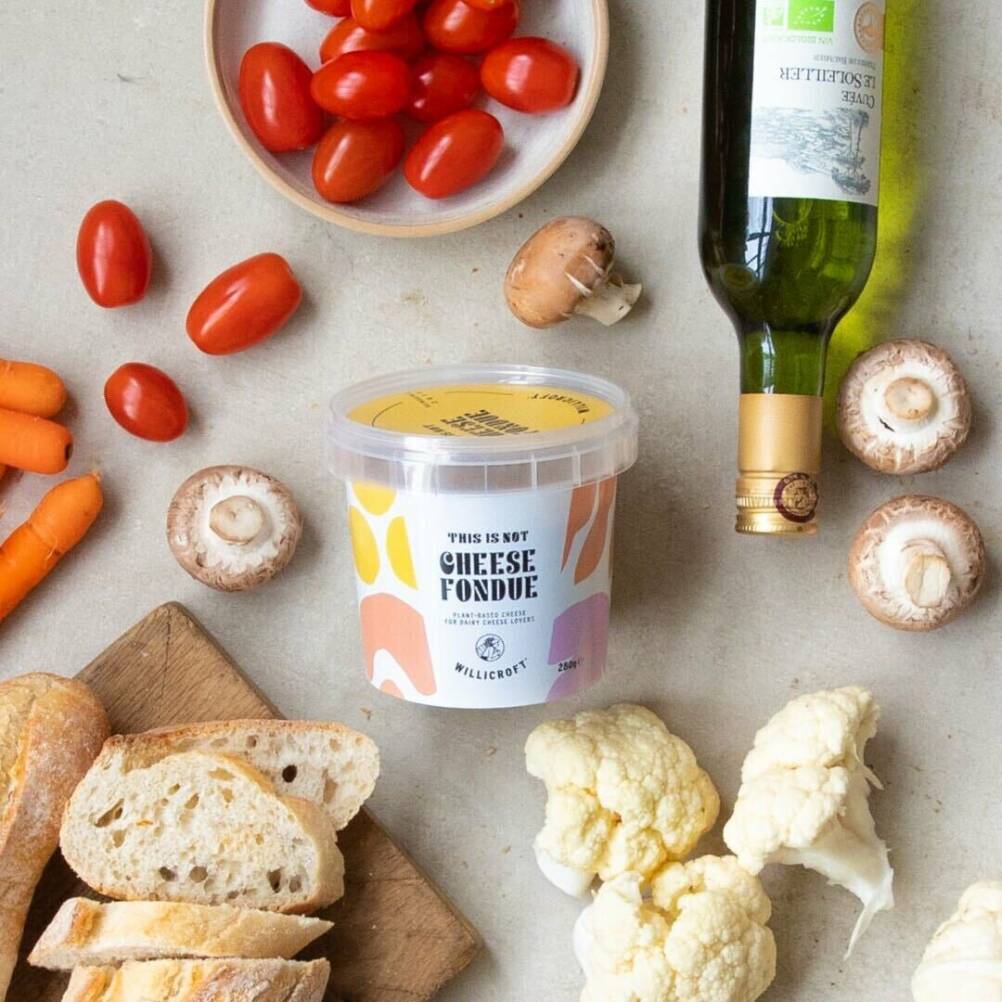
what is waste
02
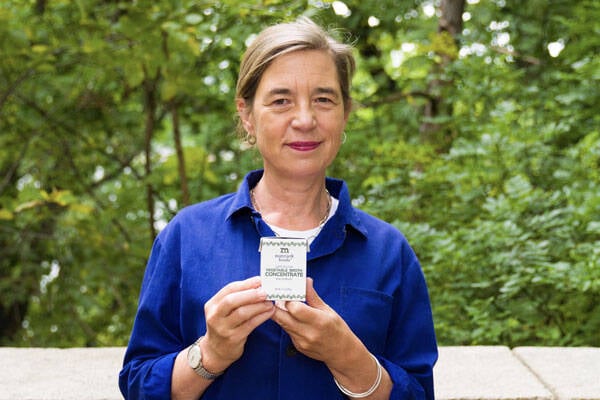
Seaweed soda
01
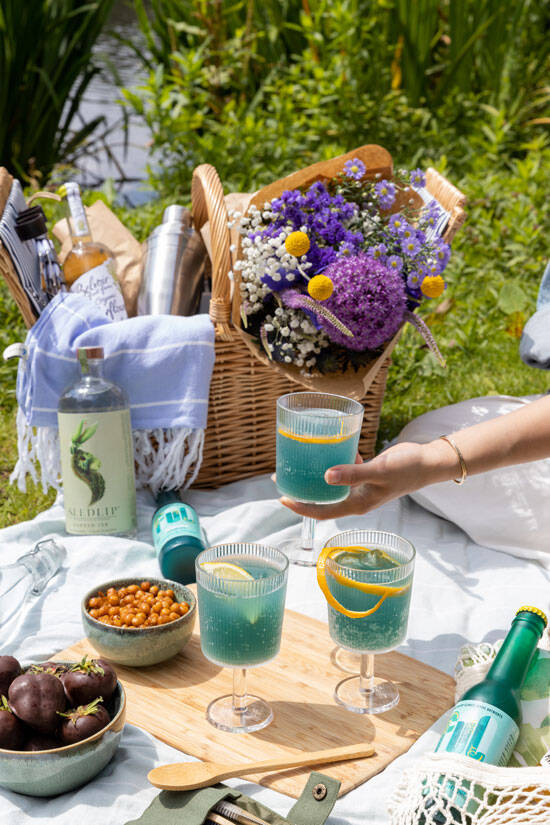
Companies that are all for positive change in our food system
Lisa Appels Xiao Er Kong
A major part of the food we eat is made by a handful of big traditional companies. But a new generation of food producers is on the rise, catering to the demand of the Millenials and Gen-zers who want better, healthier and climate positive food, for a better future. Food Inspiration put together a list of some inspirational makers, who try to change the way we eat.
A new generation of food makers
cool concepts
Unlike many other cheesemakers, Willicroft does not choose nuts, but beans as the main ingredient of their vegan cheese. The company makes cheese fondue, two cheese sauces, grated Italian and Greek white cheese for retailers. But the company also sells 'Young Dutch' and 'Mature' to foodservice.
Sam Vreeke, product developer at Willicroft: “We would like to match animal cheese as much as possible. It makes it more pleasant for consumers to switch to vegan, even if only occasionally. In terms of taste it was very doable, but structure is still a real challenge. Therefore, many cheese substitutes on the market now replace only one aspect of animal cheese - for example they make cubes of cheese. But if you think of young matured cow's cheese. You can slice it for your sandwich, cut into cubes as part of a cheese board or grate it over a sauce. Being able to do all those things is difficult to imitate with a plant-based variant.” He laughs: "And that's exactly why we want to try it."
‘I can leave out meat, but I really can't pass up cheese’, is a frequently heard response to the call for a vegan diet. It is exactly the motivation of Dutch vegetable cheese brand Willicroft to create plant based cheese that’s just as good as cheese made of animal mill.
Founder of the company Brad Vanstone grew up surrounded by cheese makers. His grandfather and grandmother ran a well-known dairy farm in England. Back when he switched to a plant-based diet, according to him there was a huge lack of tasty vegan cheese. After much experimentation at home, he started Willicroft, named after his grandparents' cheese farm.
© Willicroft
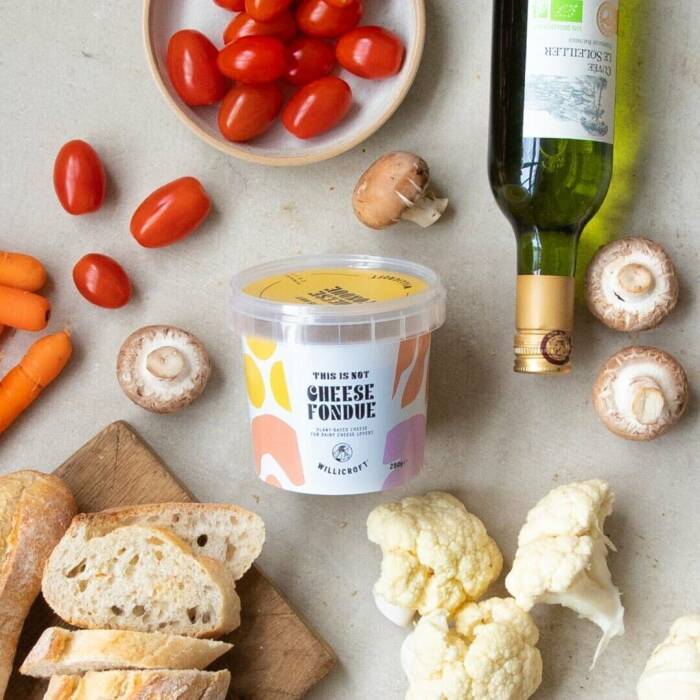
Beans or Cheese
Information mentioned in the interview by Anna Hammond.
© Matriark Foods
According to Hammond, making a vegetable broth in your home kitchen is very different from making it at an industrial scale. “We started to experiment on a small scale, and after a while we developed a product that was delicious and a supply chain that was secure.”
Since founding the company in 2018, they’ve grown a lot. Matriark is now selling into large scale food service and made their first big sale to Chartwells, which is a Compass Group company that provides food for higher education. Also the company became a part of the Foodbuy Accelerator for minority and women-owned businesses.
Solving food waste is perhaps the most impactful solution to the climate crisis, and can help to safeguard the livelihoods of many. Matriark foods – located in the state of New York – uses food - that’s been thrown away - to create new products. Their first product to market is a vegetable broth concentrate. By sourcing imperfects and surplus from farmers and remnants from fresh-cut facilities, their Upcycled Broth Concentrate makes use of vegetables that would otherwise go to waste
The products they make, really come out of what was available. “It is quite the opposite approach of most food companies, who for example decide to produce a vegan coconut celery kale ginger soup, after which they search for the products to make it”, says founder Anna Hammond - their approach is more similar to the way a good chef or home cook goes about making something: they open the refrigerator, they ask themselves; what can I make from the stuff that’s in there. So when the team at Matriark saw massive quantities of onions, carrots and celery going to waste, the most obvious thing to make was vegetable broth!
Anna Hammond
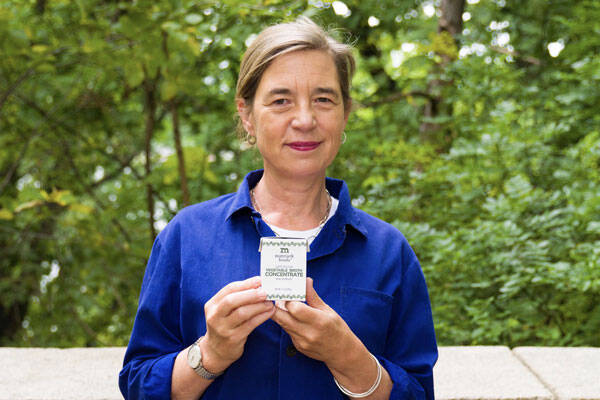
what is waste
But in what way can seaweed and algae be used in our diets? For chefs kelp is an umam-heavy ingredient that is very flexible. Especially in the Japanese cuisine seaweed and algae is used a lot - and not just for sushi and salads. Think of the basic stock known as dashi for example – with types of seaweed such as nori, kombu and wakame. Some chefs dry algae and turn it into a powder to enrich and decorate certain dishes. But if that all sounds a little difficult, it’s now also possible to enjoy algae by simply buying or ordering a soft drink.
The start-up FUL, created 100% vegetable soft drink based on spirulina, by doing so they’ve created CO2-negative superfood drink that is healthy for the planet and for people. The three founders Sara Guaglio, Julia Streuli and Cristina Prat Taranilla met in 2019 during their MBA at INSEAD business school in Singapore and are now located in the Netherlands in Delft. Initially, the makers of the soft drink thought that a green-colored drink would fit in well with the sustainable appearance. But consumers thought otherwise. During test sessions it turned out that the people didn’t find the green color attractive, and preferred the color blue. Since their founding they’ve been awarded with several innovation awards. So maybe in the future, instead of ordering a coke, we’ll all be drinking algae soda.
For several years innovative food designers, scientists and forward thinkers have looked at seaweed as the food that can save our future. That's because for humans some seaweeds like kelp have high concentrations of antioxidants and a bunch of vitamins. For the earth, kelp doesn’t require irrigation, pesticides or fertilizer, like many land-based crops do.
According to GreenWave, a company situated in the US that trains and supports regenerative ocean farmers, growing seaweeds and shellfish is the most sustainable version of food production because they require zero input, farmland and at the same sequester carbon and rebuilding reef ecosystems.
© FUL
Seaweed soda
Companies that are all for positive change in our food system
A new generation of food makers
Lisa Appels Xiao Er Kong
A major part of the food we eat is made by a handful of big traditional companies. But a new generation of food producers is on the rise, catering to the demand of the Millenials and Gen-zers who want better, healthier and climate positive food, for a better future. Food Inspiration put together a list of some inspirational makers, who try to change the way we eat.
4 min














